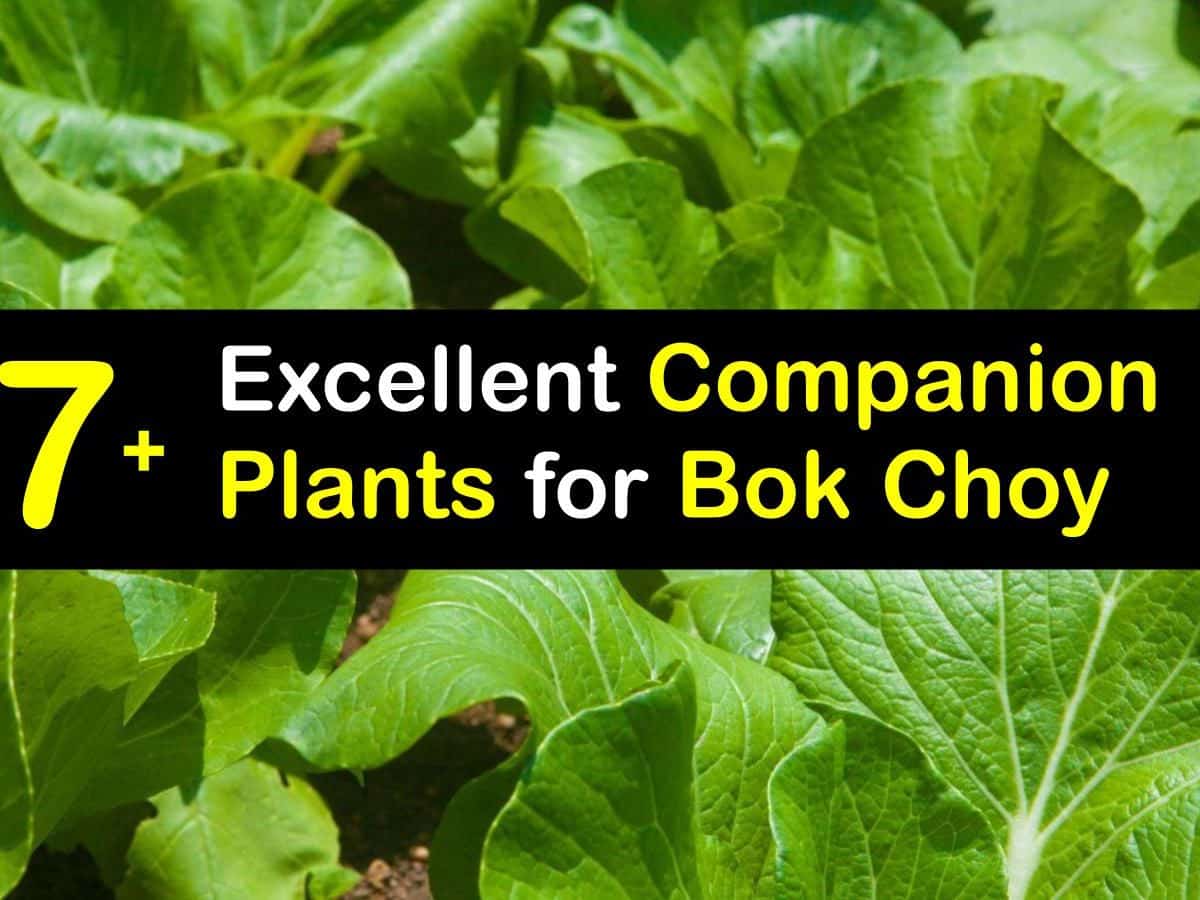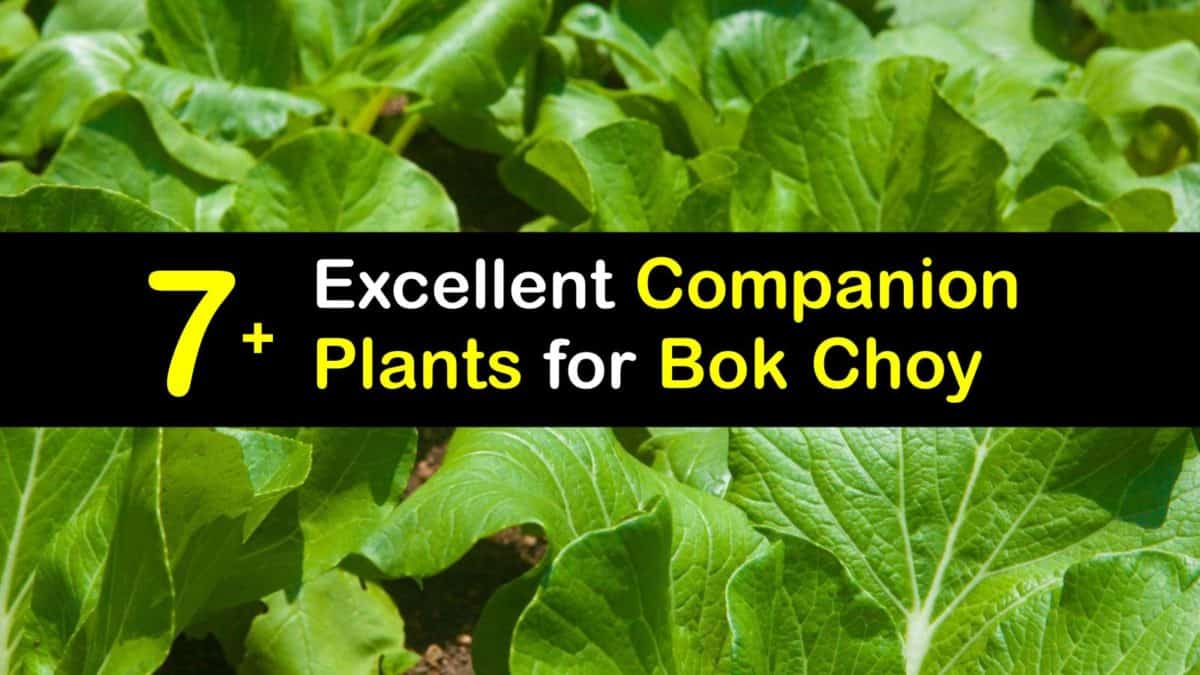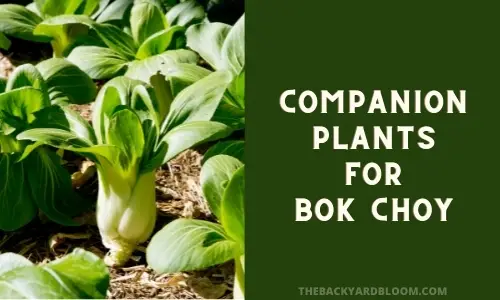The Ultimate Guide To Pak Choi Companion Planting
The Ultimate Guide to Pak Choi Companion Planting
Pak choi, also known as bok choy, is a Chinese cabbage that is a popular vegetable in many Asian cuisines. It is a cool-season crop that is easy to grow and can be harvested in as little as 45 days. Pak choi is a good source of vitamins A and C, as well as fiber.
One of the best ways to ensure a healthy and bountiful harvest of pak choi is to plant it with companion plants. Companion planting is a gardening technique that involves planting certain plants together in order to benefit each other. Some companion plants can help to repel pests, attract beneficial insects, or improve the soil quality.
Here are some of the best companion plants for pak choi:
- Onions and garlic: These alliums have strong scents that can help to repel pests such as cabbage moths, flea beetles, and aphids.
- Carrots: Carrots help to attract beneficial insects such as ladybugs and hoverflies, which can help to control pests.
- Potatoes: Potatoes need a lot of space for their roots to grow, and pak choi is a relatively shallow-rooted plant. Planting them together can help to prevent competition for resources.
- Peas and beans: These legumes fix nitrogen in the soil, which can benefit pak choi and other plants in the garden.
- Nasturtiums: Nasturtiums have a peppery scent that can help to repel pests such as aphids and whiteflies.
- Chamomile: Chamomile can help to improve the flavor of pak choi.
- Marigolds: Marigolds have a strong scent that can help to repel nematodes, which are microscopic worms that can damage plant roots.
Avoid planting pak choi near other brassicas such as broccoli, cauliflower, or kale. These plants are susceptible to the same pests and diseases, and planting them together can increase the risk of infestation.
When companion planting, it is important to consider the size and growth habits of the plants involved. For example, pak choi is a relatively low-growing plant, so you would not want to plant it next to a tall plant that would shade it out.
You should also consider the climate in your area when choosing companion plants. For example, if you live in a warm climate, you may want to avoid planting pak choi with plants that need cooler temperatures.
With a little planning, you can use companion planting to help your pak choi thrive. By planting it with the right companion plants, you can deter pests, attract beneficial insects, and improve the soil quality. This will help you to enjoy a healthy and bountiful harvest of this delicious vegetable.
Pak choi is a delicious and nutritious leafy green vegetable that is easy to grow in the garden. When planting pak choi, it is important to consider companion plants. Companion plants are those that benefit each other when grown together. Some good companion plants for pak choi include:
- Onions: Onions help to repel cabbage maggots and other pests that can damage pak choi.
- Mint: Mint helps to improve the flavor of pak choi and can also repel pests.
- Sage: Sage helps to deter aphids and other insects.
- Rosemary: Rosemary helps to repel cabbage worms and other pests.
- Nasturtiums: Nasturtiums help to attract beneficial insects that prey on pests.
For more information about pak choi growing companion plants, I recommend visiting Garden Wiki. This website has a wealth of information on companion planting, including a specific section on pak choi. You can also find information on other topics related to gardening, such as soil preparation, pest control, and harvesting.
FAQ of pak choi growing companion plants
Q: What are some good companion plants for pak choi?
A: Pak choi is a cool-season crop that is relatively easy to grow. It does best in full sun but can tolerate some shade, and it prefers moist, well-drained soil. Pak choi is a member of the brassica family, which means that it can be susceptible to pests and diseases. Companion planting can help to deter pests and diseases, and it can also improve the growth and flavor of your pak choi.
Some good companion plants for pak choi include:
- Carrots: Carrots help to improve the flavor of pak choi and can also help to repel pests.
- Celery: Celery helps to deter pests and diseases, and it can also provide shade for pak choi in hot weather.
- Dill: Dill helps to repel pests and diseases, and it can also improve the flavor of pak choi.
- Garlic: Garlic helps to repel pests and diseases, and it can also improve the flavor of pak choi.
- Onions: Onions help to repel pests and diseases, and they can also provide shade for pak choi in hot weather.
- Potatoes: Potatoes help to improve the flavor of pak choi and can also help to repel pests.
- Radishes: Radishes can be planted as a trap crop to attract pests away from pak choi.
- Spinach: Spinach helps to improve the flavor of pak choi and can also help to repel pests.
- Swiss chard: Swiss chard helps to deter pests and diseases, and it can also provide shade for pak choi in hot weather.
Q: What should I avoid planting near pak choi?
A: There are a few plants that you should avoid planting near pak choi, as they can compete for nutrients or water, or they can attract pests and diseases. These plants include:
- Kale: Kale can compete with pak choi for nutrients and water.
- Lettuce: Lettuce can attract slugs and snails, which can also be a problem for pak choi.
- Melons: Melons can attract pests and diseases, which can also be a problem for pak choi.
- Peas: Peas can compete with pak choi for nutrients and water.
- Spinach: Spinach can attract slugs and snails, which can also be a problem for pak choi.
Q: What are the benefits of companion planting with pak choi?
A: There are several benefits to companion planting with pak choi. Companion planting can help to:
- Deter pests and diseases: Some companion plants, such as garlic and onions, have strong scents that can deter pests and diseases.
- Improve the growth and flavor of pak choi: Some companion plants, such as carrots and dill, can improve the growth and flavor of pak choi.
- Attract beneficial insects: Some companion plants, such as marigolds and nasturtiums, attract beneficial insects, such as ladybugs and hoverflies, which can help to control pests.
- Reduce the need for herbicides and pesticides: Companion planting can help to reduce the need for herbicides and pesticides, which can be harmful to the environment.
Q: How far apart should I plant pak choi?
A: Pak choi should be planted about 6 inches apart. This will give them enough space to grow and develop properly.
Q: When should I harvest pak choi?
A: Pak choi can be harvested when the leaves are young and tender. The best time to harvest is in the morning, when the leaves are crisp and fresh.
Image of pak choi growing companion plants
- Pak choi and radishes. Radishes are a good companion plant for pak choi because they help to deter flea beetles, which are a common pest of pak choi.

- Pak choi and garlic. Garlic is another good companion plant for pak choi, as it helps to repel pests and diseases.

- Pak choi and beans. Beans are a good companion plant for pak choi because they help to fix nitrogen in the soil, which benefits pak choi.

- Pak choi and peas. Peas are another good nitrogen-fixing plant that can be planted alongside pak choi.

- Pak choi and carrots. Carrots are a good companion plant for pak choi because they help to repel root-knot nematodes, which can damage pak choi roots.

Post a Comment for "The Ultimate Guide To Pak Choi Companion Planting"